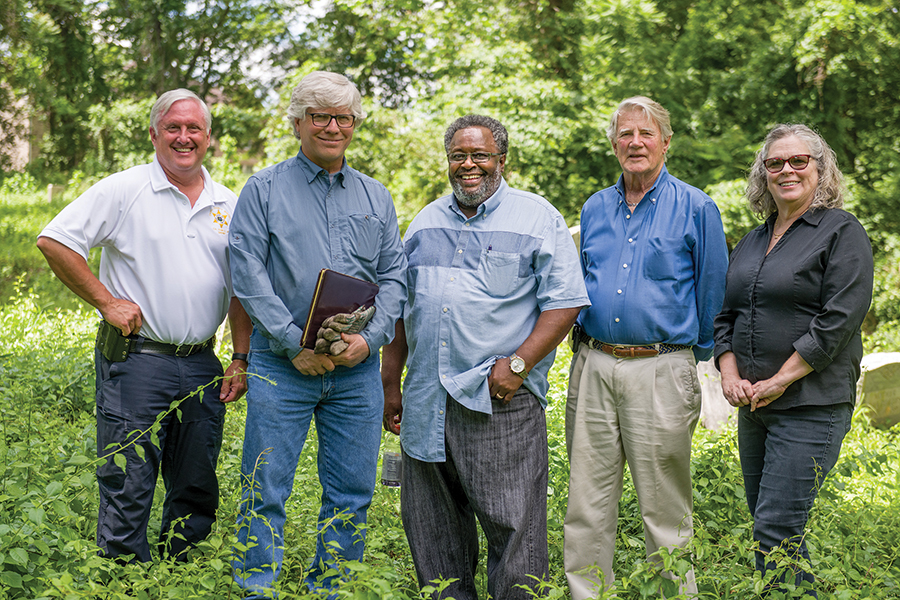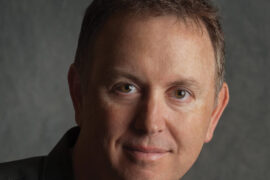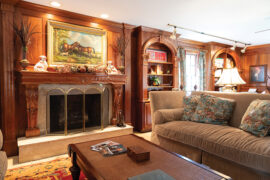A new effort is underway to rescue an abandoned African-American cemetery.
By James E. Casto
HQ 110 | SUMMER 2020
Huntington once was home to a well-tended African-American cemetery. Overgrown with vines and bushes, the old cemetery has been abandoned and neglected for decades. Now, a concerted effort is underway to rescue the cemetery from that neglect.
Bethel Memorial Park, also sometimes called Crossroads Cemetery, had its beginning in 1914 when Charles S. and Mary McClain began purchasing small parcels of property just off Norway Avenue. Joining their land purchases together, the McClains opened the cemetery.

Although there are said to be some white graves at the cemetery, it’s predominately the final resting place of African-Americans who were buried there by the former McClain Funeral Home.
Charles McClain died first, then Mary McClain in 1959. Her death prompted a lengthy legal battle between her heirs and eventually resulted in the cemetery’s closure and abandonment. In 2006, Earl and Deborah Arentz purchased the cemetery at a court-ordered public auction.
In 2015 members of the Westmoreland Chapter of the Daughters of the American Revolution (NSDAR) undertook a service project to compile information about the old cemetery. When members of the group visited the cemetery, they could find only 150 or so headstones, many marking the graves of veterans.
Later, when NSDAR members June B. Ashworth, Connie Jackson McCagg and Wilma Skean began an in-depth research effort, they found death certificates and obituaries for more than 800 individuals. In 2017, they published their findings in a book, Bethel Memorial Park Cemetery, Huntington, West Virginia. The book is the most extensive record for those buried in Bethel, as records from the long-defunct McClain Funeral Home have been lost. (The book may be purchased from June Ashworth, 562 N. Inwood Drive, Huntington, WV 25701. The price is $18, plus $4 for postage and handling.)
In recent years, sporadic efforts to clean up and restore the cemetery have been met with little success. Now, a new effort is underway, one aimed at not only clearing the overgrown cemetery but also creating an endowment fund that would assure its future care.

Spearheading the new effort is Huntington City Council member Carol Polan, retired Huntington Steel president Sterling Hall and Dr. James Bryce, an assistant professor of civil engineering at Marshall University.
“When I saw the cemetery for the first time I was overwhelmed with guilt that we in Huntington had allowed it to get in such a sad state,” said Polan. “Since then I have been obsessed with trying to do something about it. I’m not strong enough or smart enough to do it by myself. So, with Sterling’s help, we’ve put together a huge volunteer team. The property owners, Deborah and Earl Arentz, have been unbelievably cooperative.”
Polan is one of the founding board members of Recovered Solutions, a local nonprofit that puts recovering addicts to work renovating dilapidated homes. At her request, Recovered Solutions’ workers were soon helping clear Bethel Memorial.
“Thanks to Dr. Bryce, we had 150 Marshall students come out to help,” Polan said. “The Black Pastors Association and the Boy Scouts were also involved. We started work at the cemetery in August. We placed orange survey flags marking each of the gravestones because we didn’t want them damaged — other than those already broken. We had about one-fourth of the cemetery cleared when the coronavirus pandemic hit. That, of course, brought us to a halt. What we’re doing now is lining up things so, when the current restrictions are lifted, we can immediately get back to work and finish the job as quickly as possible.”
“Carol Polan was one of the first people my wife and I met when we came to Huntington, and it didn’t take long for her to enlist us in the effort to restore Bethel Cemetery,” said Dr. Bryce. “We’ve had various Marshall groups involved — student government, ROTC, the student engineers organization and others. We had two more work dates scheduled when the virus shut everything down. And we intend to be back on the job as soon as we get the all-clear to do so.”
The goal, Hall said, is to have the place cleaned up and reopened “so people who have loved ones buried there can visit their grave, something they haven’t been able to do in many, many years.”
The Arentzs have indicated they are willing to donate the cemetery property to a nonprofit entity which could run and maintain it if we can arrange that. “We’re working to make that happen,” Hall asserted.
“What has been allowed to happen at Bethel Cemetery is just wrong, tragically so,” Polan said. “Now the community has an opportunity to make it right.”
Tax-deductible contributions to a new Bethel endowment fund may be mailed to the Foundation for the Tri-State Community, P.O. Box 7932, Huntington, WV 25779, with “Bethel Cemetery Fund” in the check’s memo line.





